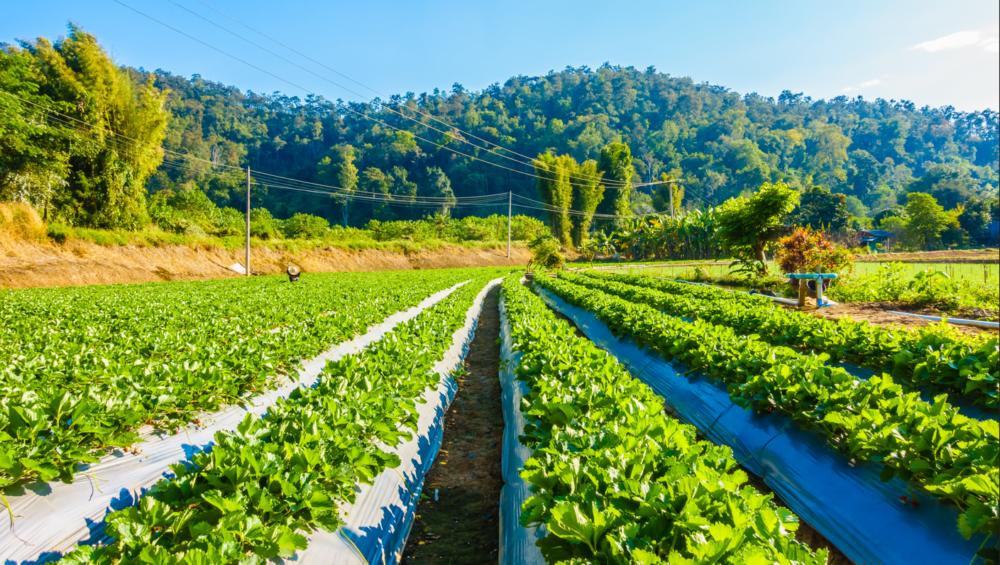
How organic farming is helping the environment?
Share
Overview
Organic farming has emerged as a beacon of hope in addressing environmental concerns associated with conventional agricultural practices. This eco-friendly approach not only focuses on producing food but also prioritizes the health of the environment. By shunning synthetic chemicals and embracing sustainable methods, organic farming yields several benefits that significantly contribute to a healthier planet.
Introduction to Organic Farming
Organic farming, at its core, revolves around cultivating crops and raising livestock without the use of synthetic pesticides, fertilizers, or genetically modified organisms (GMOs). Unlike conventional farming, which heavily relies on chemical inputs, organic practices emphasize natural methods to promote soil fertility and crop growth.
Environmental Benefits of Organic Farming
Reduced Chemical Usage
One of the primary advantages of organic farming lies in the significant reduction of chemical usage. By abstaining from synthetic pesticides and fertilizers, organic farmers prevent the contamination of soil, water, and air, thereby safeguarding ecosystems and wildlife.
Soil Health Improvement
Organic farming techniques, such as crop rotation, composting, and the use of natural fertilizers, nurture soil health. This leads to improved soil structure, enhanced water retention, and increased biodiversity within the soil, fostering a sustainable agricultural environment.
Biodiversity Preservation
Organic farms support diverse ecosystems by promoting natural habitats for wildlife. The absence of chemical pollutants allows beneficial insects, birds, and other organisms to thrive, contributing to a balanced and resilient ecosystem.
Impact on Water Conservation
Reduced Water Pollution
By eschewing synthetic chemicals, organic farming significantly minimizes water pollution. Runoff from conventional farms laden with pesticides and fertilizers poses a threat to aquatic life and water quality. In contrast, organic methods mitigate this risk, benefiting aquatic ecosystems.
Water Preservation Techniques in Organic Farming:
Organic practices prioritize water conservation through methods like mulching, drip irrigation, and rainwater harvesting. These techniques minimize water wastage, ensuring efficient use of this precious resource.
Mitigating Climate Change
Carbon Sequestration in Organic Practices
Organic farming contributes to carbon sequestration by enhancing soil organic matter. Healthy soils act as carbon sinks, absorbing and storing atmospheric carbon dioxide, thus mitigating the impacts of climate change.
Lowering Greenhouse Gas Emissions
The avoidance of synthetic fertilizers in organic farming diminishes the release of nitrous oxide, a potent greenhouse gas. This reduction in emissions helps combat global warming.
Promotion of Sustainable Agriculture
Long-Term Benefits for the Environment
Organic farming fosters sustainable agricultural practices that benefit the environment in the long run. The focus on soil health and biodiversity ensures the resilience of ecosystems, supporting food production for future generations.
Support for Local Ecosystems and Communities
By promoting local and small-scale farming, organic practices strengthen local economies and communities. This localized approach reduces transportation emissions and fosters a closer relationship between consumers and producers.
Challenges and Criticisms of Organic Farming
Despite its numerous environmental advantages, organic farming faces challenges. Accessibility, affordability, yield limitations, and scalability issues hinder widespread adoption. Addressing these concerns is crucial for ensuring broader environmental benefits.
Conclusion
In conclusion, organic farming stands as a pivotal solution in promoting a healthier environment. By minimizing chemical usage, preserving water resources, mitigating climate change, and supporting sustainable agriculture, organic practices offer a pathway toward a more ecologically balanced future.